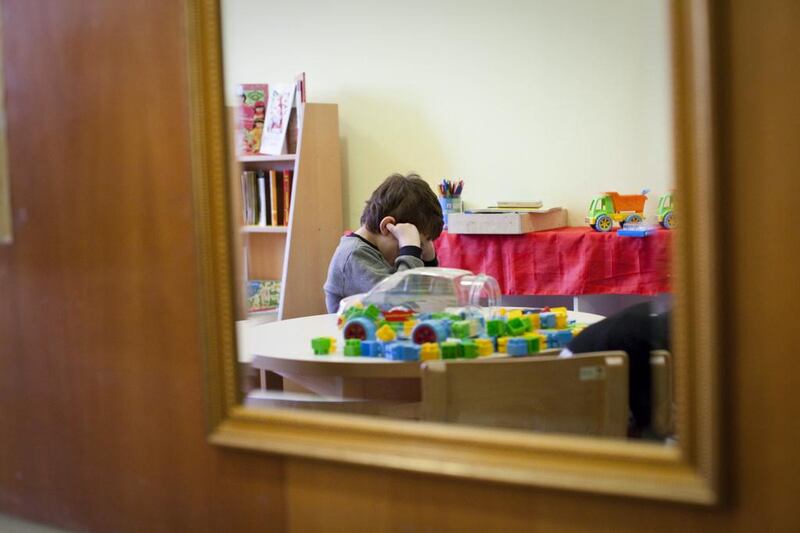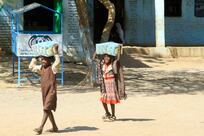SARAJEVO // Children are receiving an education their parents could only have dreamt of, thanks to Dubai Cares and the UN Children’s Fund.
A delegation from the UAE charity has visited two of schools where its funding has already had significant benefits for the pupils.
The first, in Visoko, now has a preschool programme that caters for more than 300 children, including some with disabilities and learning difficulties.
“It has been excellent,” said Fahra Zukan from Visoko, whose daughter Nejra, 6, has Down syndrome.
“I have seen big changes in her. She has started to play around and is now even doing painting books alone, which she never did before.”
Mrs Zukan said being in a regular classroom was of the utmost importance for her child’s development.
“It has been great. She has made great friends too,” she said. “She will definitely be better prepared for primary school.”
It is the first time children from Mrs Zukan’s town of Cajno had been able to attend school from such a early age.
“I actually could not have imagined that something like this would happen and that we would have a project here that would be so good for children,” she said.
The Dubai Cares and Unicef programme also reaches out to more remote parts of the country, where families have less income and societal norms mean few children would have gone to school before the compulsory age of seven.
The delegation this week also travelled to the remote village of Majohe, more than 100 kilometres to the north of Sarajevo.
The local kindergarten has been able to provide for more children since Unicef first provided assistance two years ago.
Now, using Dubai Cares funds, the school is able to cater for even more children and give them more time in the classroom.
“She has more confidence. This really has had a positive effect on her,” said Haida, a mother from the Mahoje area, who had just enrolled her five-year-old daughter Delila at the local kindergarten.
“I have already noticed some changes. She already has new habits. It is really something good. I was very sceptical in the beginning but already, in such a short time – it is only two weeks – she has shown so much progress.
“I thought it was too early and not time for them to go to school. This area is cold and there will be snow soon, and I didn’t think it would be good for children to go to school so early.
“But I think that a child that is five years old is like a sponge, they absorb everything.”
She is positive her daughter will now have a far better chance in life. Like so many in Bosnia and Herzegovina, Haida’s own education had been disrupted by conflict.
“When I went to school it was during the war so it was really hard for us then,” she said. “School seemed like a monster to me at the time.
“Now, it is really something. Now when my daughter comes home, she tries to teach me things. It is amazing.”
But many parents are yet to be convinced of the necessity of early-years learning.
“So many people here are sceptical here in my village,” Haida said. “We have to speak to those parents. I am telling everyone that it is something good. I think my daughter will have a better future because of this.”
Local teachers have also hailed the success of the scheme.
“The changes are very noticeable, first and foremost in the socialisation aspect,” said Anela Muhic, a teacher at Mahoje kindergarten.
“They live in such an environment that their parents believe many things a child do are shameful or something that they should be ashamed about.
“Over the last 15 days I can see that the children gladly communicate, but for the first three days they were just keeping quiet, because that is the climate that they live in.
“They didn’t have any opportunity in their lives to express their opinion. Coming here they can do that.
“For example, when someone visits them, they are usually taught that they must keep quiet and sit still. That is how they would be perceived to be good children.
“But in this short time that has completely changed. I have seen it over the last 15 days.
“In such a short period of time the children learn so many things and learn these short poems, counting poems and so on.
“Taking into consideration the fact that they never had the opportunity to do this in front of people, it is amazing that none of them cried.”
ksinclair@thenational.ae






